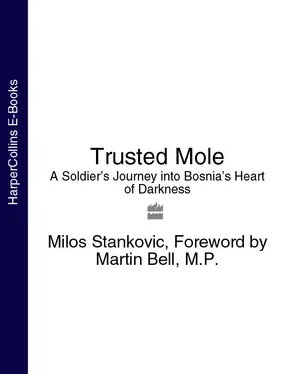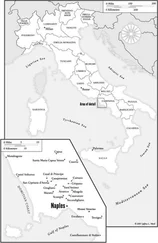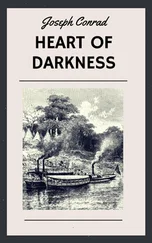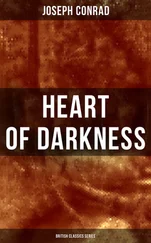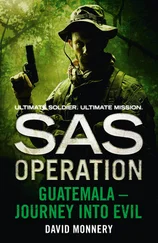We stare at each other. ‘No, Ian – that’s the way we did that. Historical prostitute … funny if it wasn’t so tragic, being a prostitute.’
Ian’s picked up his board again. He doesn’t bother writing while I’m raving at him. He’s talking softly now, ‘Let’s forget about Bosnia for a moment. Why don’t you tell me about your family? Let’s start with that, shall we. That seems to be the root of all this.’ His voice is very soothing, compelling, almost narcotic.
‘My family! Have you got all night? There’s more history here than anyone can cope with. Sure you’re up to it?’
‘Only if you are.’
‘We’ve been at it for most of the century. All over the place. Even the Army can’t figure out what I’m supposed to be. On my PAMPUS computer record they’ve got me down as “BRIT NAT/FOREIGN” for my nationality at birth and current nationality. What’s that supposed to mean? “FOREIGN”?’
Ian just shrugs. There’s no answer to that sort of question.
‘I suppose it’s their way of labelling someone if they can’t work out where they’re really from. You’ve got to sympathise with them to a certain extent. It’s a nightmare trying to work out what’s what in our family this century.’
‘So, tell me about it.’
‘Okay. Best place to start is with my maternal grandmother, Jessie Constance Millar Rowan. A Scot. I suppose that’s what the Army means by “FOREIGN”. She was from a wealthy Ayrshire family who were shipping-line owners in the last century. Of course, she had the best schooling – Paris and Cheltenham Ladies – and pretty much did nothing other than look after a menagerie at home and drive around Scotland. She was somewhat eccentric, though. She had no brothers, so in a peculiar sort of way became the son her father never had. She’d sit there with him after dinner, at the age of fifteen, smoking cigars and drinking port. She also wore a monocle for some reason. When the Great War broke out she nursed with the VADs in France and then in Malta during the Gallipoli campaign. After that she had a brief but disastrous driving job in London with the War Office from which she was sacked for being rude to an American general whom she’d accused of coming into the war three years too late. That wasn’t the end of her driving career, though. She ended up as a Scottish Women’s Hospital ambulance driver on the Salonika front in the Balkans where the British, French and Serbs were holding the line in the Macedonian mountains. There she met her future husband, a Serbian officer called Vladimir Ilija Dusmanic.
‘He was from a grand Belgrade family. His father had been Minister for Education in Nikola Pasic’s government in Serbia. Both Vladimir and his younger brother, Branko, were educated at the Pazhovski Institute in Russia. He went on to study law in Moscow but was recalled to Serbia in 1911 when the Balkan war against the Turks broke out. Branko never returned from Russia. He was at one of the Tzar’s cadet academies and disappeared in the Revolution, no doubt eliminated by the Bolsheviks. My grandmother met Vladimir Dusmanic on the Salonika front. He was close friends with Prince Alexander, who later became King of Yugoslavia. He was in uniform for the best part of eight years, by the end of which he’d been decorated with the Milos Obilic Gold medal for Valour, the VC equivalent. Nice, but his education had been blown to bits by all these wars.
‘He and my grandmother lost touch at the end of the war. She went back to her pets in Scotland and he was sent to Paris to finish off his law studies. After that he joined the diplomatic service and was posted to London where he was the Third Secretary at the Serbian Legation. From there he tracked down Constance, pursued her to Scotland and they were married in Ayr in 1920. That was just the beginning of it.
‘He left the diplomatic service because the thought of rushing around Europe with my grandmother’s pets was too much for him. He went back to law in Belgrade where they built a home in Dedinje, just opposite what is now Milosevic’s palace, and settled down. They had four children – three daughters, of which my mother was the second, and a son. Most were actually born in Scotland.’
‘How come?’
‘Oh, don’t think they lived in penury in Belgrade. They had an extraordinary life. At least once a year they’d jump into the Bentley and drive from Belgrade to Ayr. It only took four days. On one occasion my grandmother was escort for ten days to the Duchess of York, when she and the future King George VI were visiting Belgrade in the early 1920s. So, all in all, they were pretty well-connected at court. The children received English and then Swiss finishing school educations, though they were removed from Switzerland as Nazism took hold of Germany and it looked as though Europe was heading towards another war. At the end of March 1941 they had to escape from Yugoslavia.’
‘Why?’
‘It’s obvious. Germany was about to attack in the Balkans. My grandfather was back in uniform as a lieutenant colonel and was the Royal Yugoslav Army’s liaison officer in the British Embassy in Belgrade. A few days prior to the German bombing of Belgrade and the invasion of Yugoslavia the Brits warned my grandfather and told him to get his family out of the country. Any family with connections at court was earmarked for liquidation by the Nazis. So he rang my grandmother, told her to get the children packed – one suitcase each – and to leave that very day. And that’s exactly what happened. They grabbed what they could and fled south by train that same night. My grandmother never saw her husband again after that call from the British Embassy. He stayed on to fight the Germans and died in 1943.’
‘What happened to your grandmother?’
‘She and the four children escaped by train, south to Istanbul initially and then over the Bosphorus into Asia Minor and down to the port of Mersin in southern Turkey. They stayed in Mersin for nearly a week hoping to catch a refugee ship across the Med to Palestine. Half of middle Europe was mooching about in Mersin having fled from the Germans. Eventually, they got passage on the Warshawa , a chartered refugee ship that was crammed with all sorts of aristocracy on the move out of Europe. Four days later they landed in Haifa, Palestine, where the British gave them refugee status and provided them with accommodation.’
‘And that’s where they sat out the war?’
‘Sat out? Hardly. All four children joined up with British Forces Middle East. Yvan, the youngest, lied about his age and got into the Royal Signals. The youngest daughter, Tatjana, joined the Royal Navy as a Wren, while my mother and her elder sister both joined the ATS and were posted to Cairo. My mother became a driver, initially moving tanks about large depots, then graduating to motorcycle dispatch rider and finally ending up driving ambulances during the battle of El Alamein. Her sister worked in SOE Cairo, on account of her Serbo-Croat, where she married a British officer called Rocky. He was an SOE agent and member of Force 133 which fought for Tito against the Germans in the Adriatic. Even got an uncle who fought there in the last war.’
‘So, your aunt was the only one involved on the Yugoslav side of things?’
‘Initially yes, but eventually my mother was roped into it too, again because she could speak the language. She was posted to a large refugee camp in the Sinai desert which was packed with Croat refugees. From there she was moved into Dr McPhail’s “Save the Children” Unit. By the end of 1944 they were in southern Italy preparing to go back to Yugoslavia with their ambulances as part of UNRRA, the United Nations Refugee Rehabilitation Administration. The first ever UN mission. Ironic that my mother should have been sent to Yugoslavia. In March 1945 she landed in Dubrovnik with her ambulance and spent the remainder of that year driving around Bosnia, Hercegovina and Montenegro dispensing aid to orphans. At one stage she managed to get up to Belgrade to check on the house. There was nothing left of it. German nurses had used it during the war but when the Russians arrived in Belgrade they’d used it as accommodation for a platoon. The Russians had stolen everything and defecated in every conceivable corner of the house.
Читать дальше
